The Vice-Dean of the Faculty of Agriculture at KNUST, Prof. Nana Ewusi Mensah, has called on farmers and researchers to embrace Artificial Intelligence (AI) as a tool to transform agriculture.
Speaking at the 3rd Joint Ghana Society of Animal Production (GSAP) and Ghana Animal Science Association (GASA) Conference, hosted by the Department of Animal Science at KNUST, he stressed that AI should not be viewed as a replacement for humans, but as a tool to support their work and improve efficiency.
“AI has come to stay. We must not see AI as a fight between man and machines. AI is here to complement the activities we do. AI has not come to replace man, but to synergise whatever we do as a people,” he stressed.
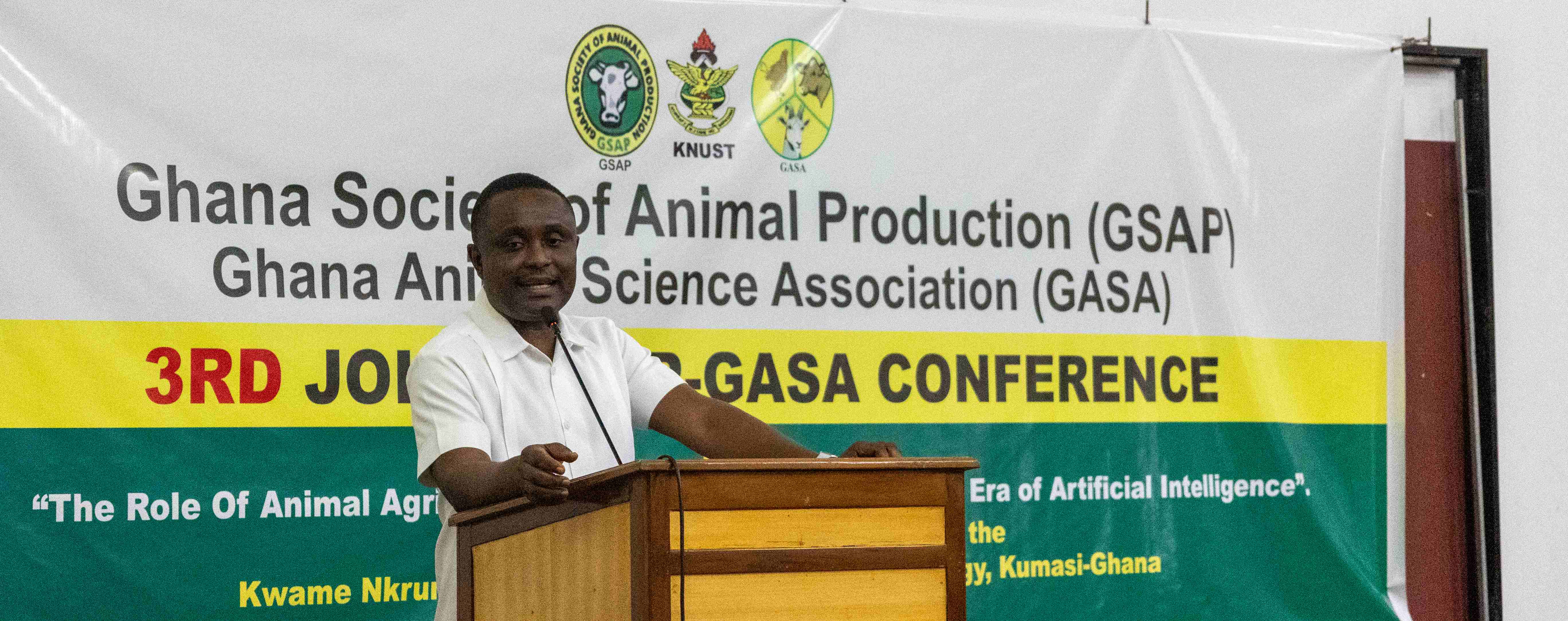
Prof. Mensah urged stronger collaboration among government, academia, and industry to build robust data systems and develop skilled professionals to drive AI-led agricultural growth.
He acknowledged challenges such as poor internet access, lack of localized data, and skills gaps, but expressed optimism about Ghana’s progress.
“There are problems when it comes to internet access and the availability of data to set up our own localized systems. But these are early days, and there is hope for Ghana. Farmer data, for example, can be leveraged to generate valuable insights for future planning,” he noted.
Held under the theme “The Role of Animal Agriculture in National Development in an Era of Artificial Intelligence,” the conference brought together participants from across Ghana, as well as representatives from Nigeria, institutions, and partner organisations.
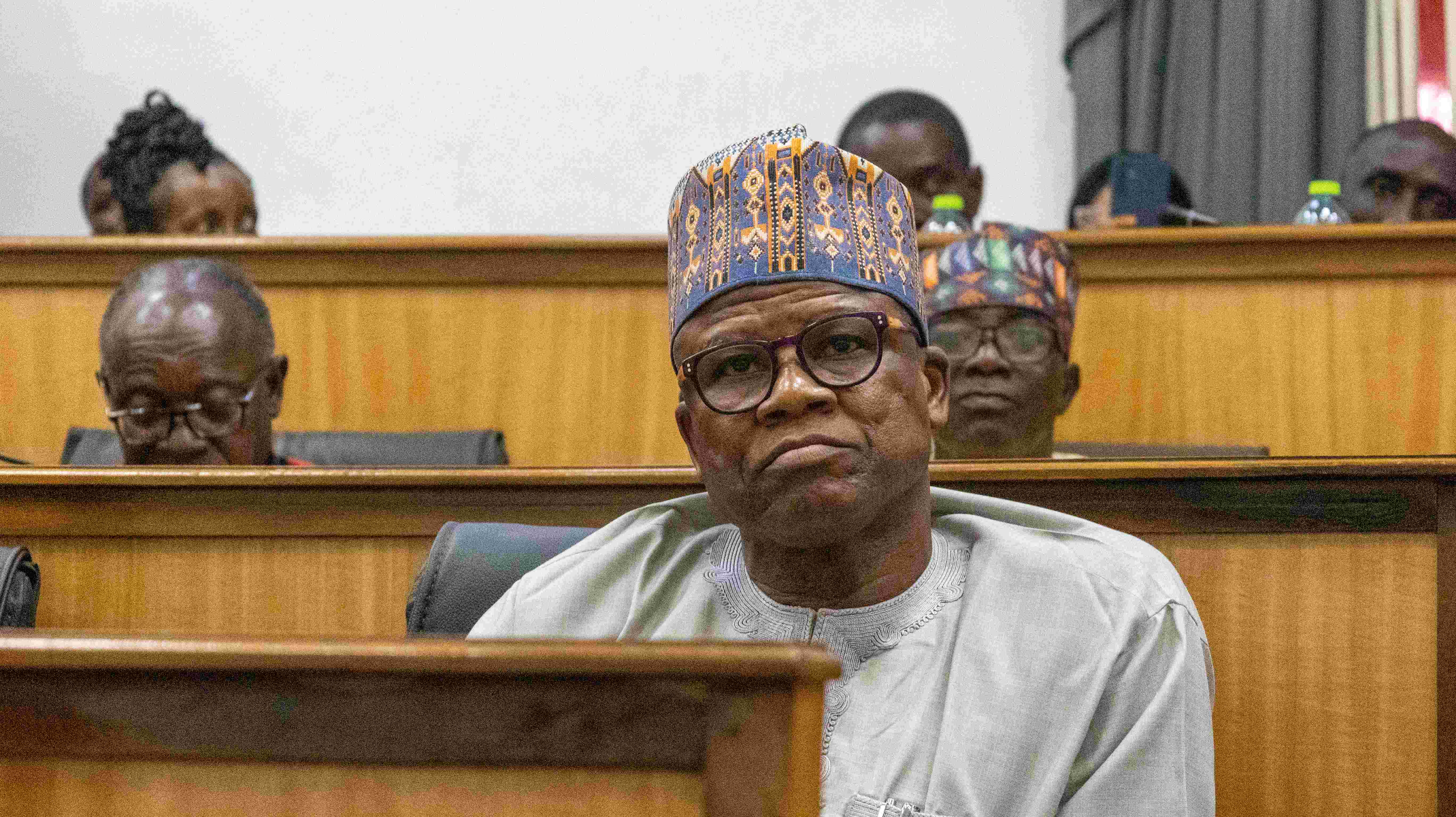
Prof. Akin Adesehinwa, President of the Pig Farmers Association of Nigeria, highlighted the need for Africa to harness AI while strengthening local agricultural systems.
He noted that the continent stands at a critical juncture in its development and called for stronger regulation of agricultural prices to protect local producers.
He further urged African leaders to reduce overdependence on Western frameworks that often dictate policy directions.
“We must come together as continental entities to ensure that we are proud of our own,” he stated. Emphasising regional solidarity, he pointed to the historic ties between Nigeria and Ghana.
“As sister nations, Nigeria and Ghana have long shared a history of mutual respect, collaboration, and common developmental goals. In the field of animal science, we must deepen these ties through joint research, cross-border innovation, harmonisation of standards, and regional policy advocacy,” he added.

Chairing the conference, the Provost of the College of Agriculture and Natural Resources, Prof. Dadson Awunyo-Vitor, challenged participants to move beyond theory and translate AI innovations into real-world solutions for farmers.
He stressed that the conference serves as a vital platform for bridging the gap between academic research and the practical realities faced by farmers.
“Our movement needs to go beyond academic theory into real-world application. The future of agriculture depends on linking our farmers with innovation. To our researchers and scientists, we encourage you to think beyond the lab.
Let your work serve the needs of our communities and farmers. Let us challenge ourselves to think boldly, act wisely, and plan realistically. The future we want is one where Ghana not only adopts AI tools but develops and exports them. That is the bold step we must take,” he concluded.

Prof. Kwaku Adomako, Head of the Department of Animal Science at KNUST, expressed gratitude to organisers, partners, and participants of the four-day conference, encouraging students to actively engage as future leaders in animal science.
He urged participants to network, collaborate, and make the most of the enriching discussions.
The conference also featured a Farmers’ Forum, where farmers discussed challenges such as pricing, input costs, and market access, while exploring AI-driven solutions.
Upcoming technical sessions will cover livestock health, genetics, nutrition, and digital technologies.
Also in attendance were the Dean of the Faculty of Agriculture, Prof. Fred Nimoh, and Prof. Jacob Alhassan Hamidu, who lent their support to the event.

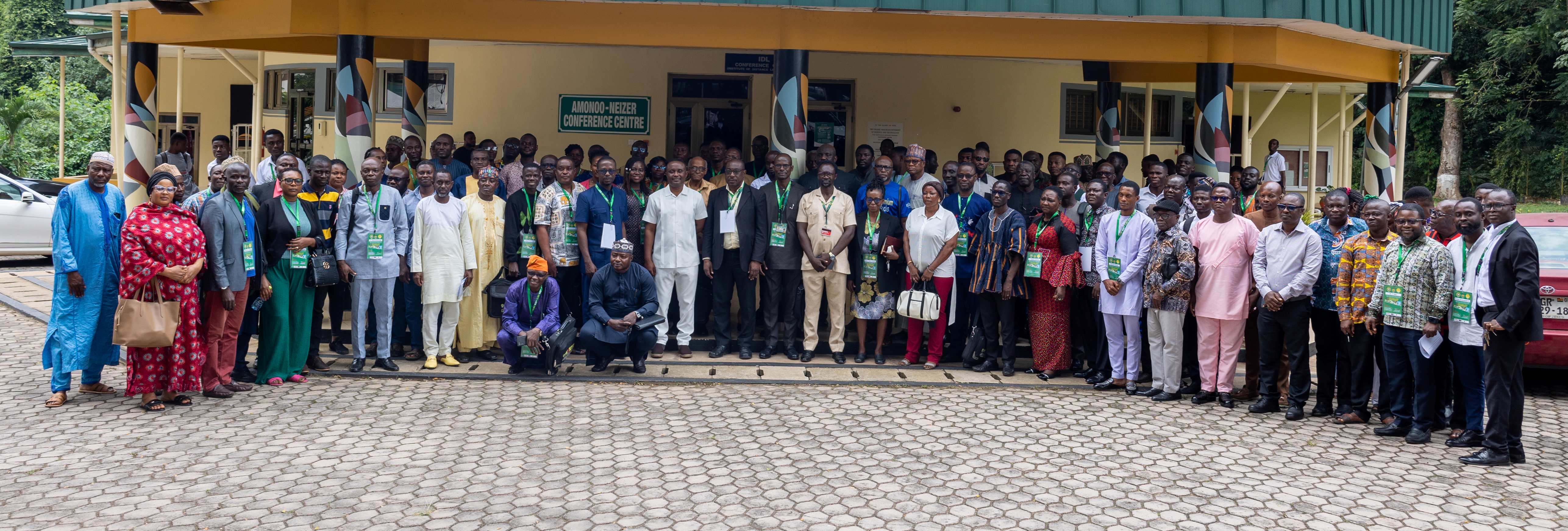
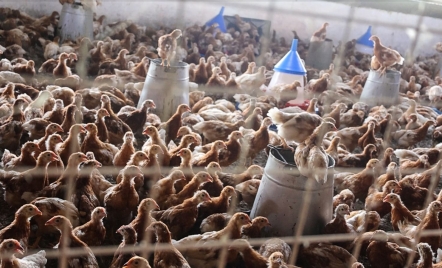
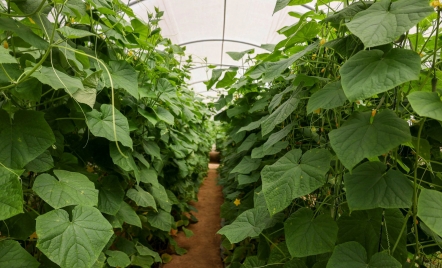
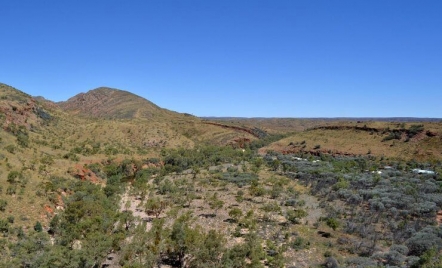
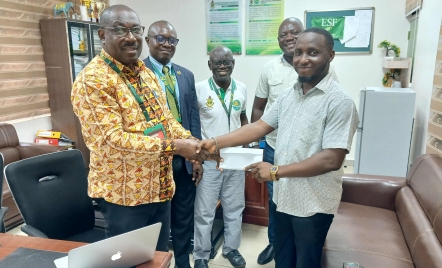
Comments